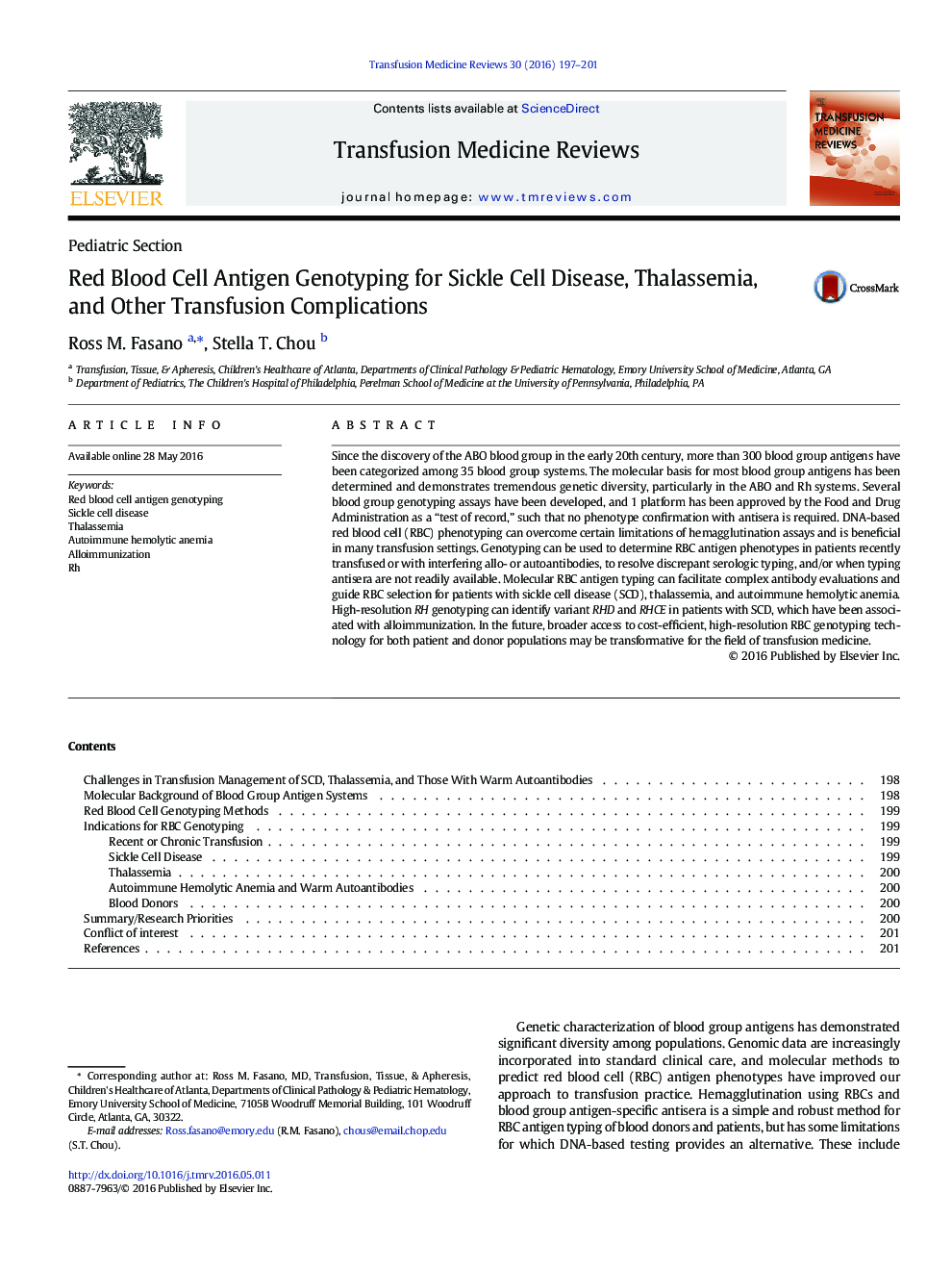| کد مقاله | کد نشریه | سال انتشار | مقاله انگلیسی | نسخه تمام متن |
|---|---|---|---|---|
| 3336443 | 1591030 | 2016 | 5 صفحه PDF | دانلود رایگان |
• Molecular red blood cell (RBC) antigen typing can augment and, in some transfusion settings, replace hemagglutination-based phenotyping.
• Molecular RBC antigen typing can improve transfusion management of patients with sickle cell disease, thalassemia, and autoimmune hemolytic anemia.
• RH genetic diversity in patients with sickle cell disease contributes to Rh alloimmunization, suggesting that more refined RBC matching strategies may be needed.
• Future feasibility studies of large-scale donor genotyping are necessary to examine the clinical impact that RBC genotyping may have in patients with hemoglobinopathies.
• Next-generation sequencing is an attractive method toward advancing blood group genotyping into transfusion medicine laboratories and services.
Since the discovery of the ABO blood group in the early 20th century, more than 300 blood group antigens have been categorized among 35 blood group systems. The molecular basis for most blood group antigens has been determined and demonstrates tremendous genetic diversity, particularly in the ABO and Rh systems. Several blood group genotyping assays have been developed, and 1 platform has been approved by the Food and Drug Administration as a “test of record,” such that no phenotype confirmation with antisera is required. DNA-based red blood cell (RBC) phenotyping can overcome certain limitations of hemagglutination assays and is beneficial in many transfusion settings. Genotyping can be used to determine RBC antigen phenotypes in patients recently transfused or with interfering allo- or autoantibodies, to resolve discrepant serologic typing, and/or when typing antisera are not readily available. Molecular RBC antigen typing can facilitate complex antibody evaluations and guide RBC selection for patients with sickle cell disease (SCD), thalassemia, and autoimmune hemolytic anemia. High-resolution RH genotyping can identify variant RHD and RHCE in patients with SCD, which have been associated with alloimmunization. In the future, broader access to cost-efficient, high-resolution RBC genotyping technology for both patient and donor populations may be transformative for the field of transfusion medicine.
Journal: Transfusion Medicine Reviews - Volume 30, Issue 4, October 2016, Pages 197–201
